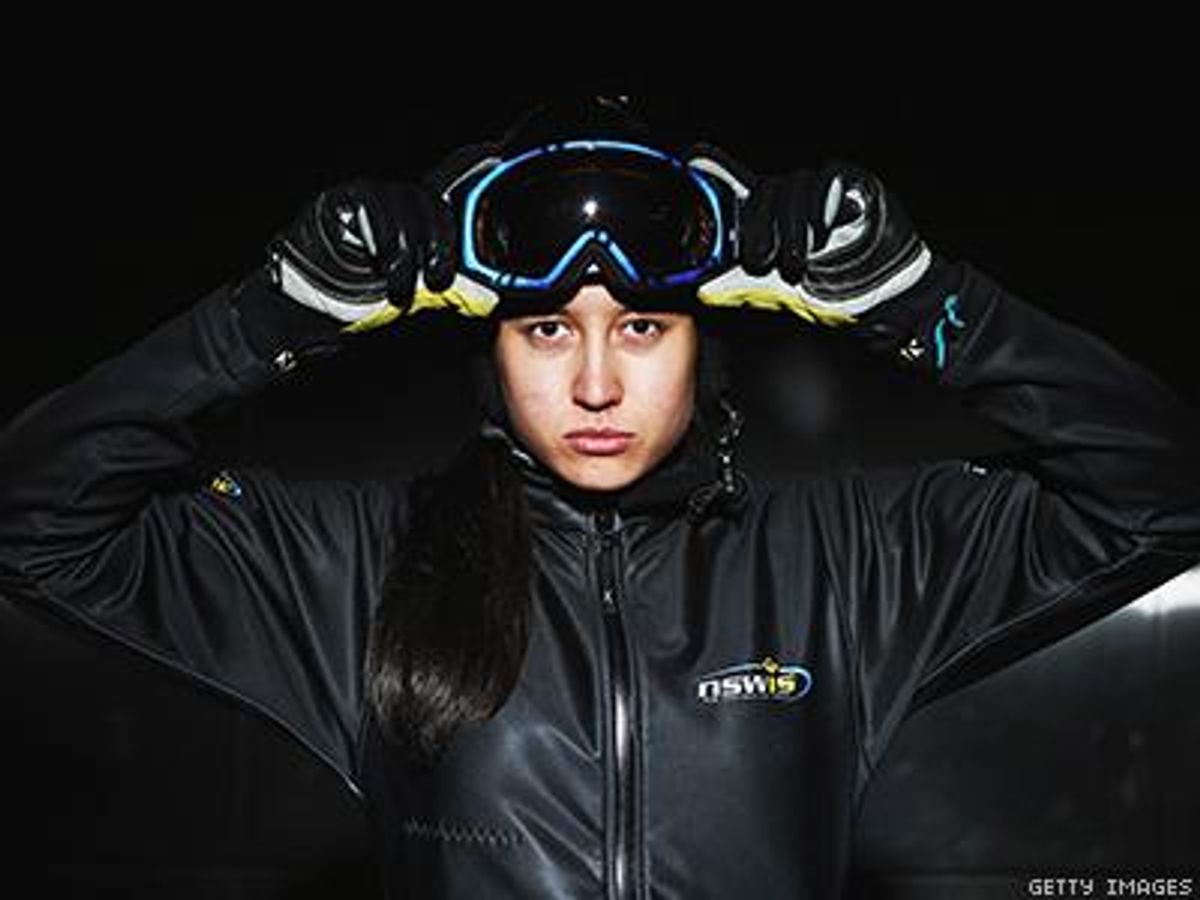This week, the International Olympic Committee amended Principle 6 of the Olympic charter, which protects athletes from discrimination, to explicitly include sexual orientation. While it is historic, many lesbian, gay, bisexual, and transgender advocates will note that this change still falls short of the goal of full equality and inclusion.
A year ago, with the 2014 Olympic Winter Games in Sochi on the horizon, Athlete Ally and All Out launched the Principle 6 Campaign to mobilize athletes and fans around the world to show support for the Olympic principle of nondiscrimination and speak out against Russia's anti-LGBT laws. The campaign appropriated the language of Principle 6 from the Olympic charter to highlight both the absence of LGBT inclusion and the fundamental problem of holding the Olympics in a country with laws that run contrary to the sixth principle's statement of nondiscrimination.
Working with American Apparel, Athlete Ally and All Out created a line of Principle 6 merchandise that was sold to raise awareness, demonstrate support, and provide much-needed funding for LGBT groups in Moscow and St. Petersburg. Olympians including Australian snowboarder Belle Brockhoff and American tennis star James Blake were among those who modeled the clothing for its launch.
The impact of the campaign was widespread, with over 50 Olympic and professional athletes joining as signatories of the Principle 6 campaign. Tens of thousands of fans across the globe also expressed their support for LGBT athletes and the Russian LGBT community. The issue of LGBT equality at the Olympics became a top story for news outlets around the world, including The New York Times and USA Today. The campaign was featured on ESPN's Outside the Lines in a segment that included U.S. Olympic snowboarders Callan Chythook-Sifsof and Seth Wescott.
The impact of the Principle 6 campaign has continued well beyond the close of the Games. It has been recognized as a driving force in encouraging the IOC to take its first tentative steps at real reform. In September the IOC added a nondiscrimination clause to future host city contracts, requiring them to pledge to uphold Principle 6. Further reform to host city contracts came the following month, when the IOC announced it would include human rights protections, compelling that all necessary means be taken to ensure compliance with international agreements, protocols, environment, health, safety, and labor laws.
Last month IOC president Thomas Bach announced 40 recommendations to shape the future of the Olympic Movement, including Recommendation 14, which proposed that the IOC include non-discrimination on sexual orientation to "strengthen the 6th Fundamental Principle of Olympism." Recommendation 14 has been recognized as a step toward unprecedented IOC support for nondiscrimination on the basis of sexual orientation by LGBT advocacy organizations including GLAAD and the Human Rights Campaign.
However, without the inclusion of gender identity, a part of the global sporting community remains vulnerable. IOC member Angela Ruggiero called the proposed amendment to Principle 6 "a message of absolute nondiscrimination." Yet without that key language regarding gender identity, transgender athletes will be left behind as the IOC moves forward.
With support from Principle 6 campaign partners, Human Rights Watch and Athlete Ally, All Out has renewed the call for the IOC to assure that all athletes, regardless of sexual orientation or gender identity, are protected from discrimination.
While the proposed inclusion of sexual orientation does, "strengthen the 6th Fundamental Principle of Olympism," the omission of gender identity as a protected class means that progress is only being made in regards to who you love, not in regards to who you are. Olympic gold medalist, U.S. women's soccer player, and Principle 6 campaign supporter Megan Rapinoe has stated that "equality is a team sport," because it takes all of us to put an end to LGBT discrimination. As we work to ensure that the Olympics and Olympic Movement truly reflect a commitment to non-discrimination, we must remember that as long as some have not yet crossed the finish line, the race toward full equality and inclusion must continue.
LAURA CLISE is the director of external communications and corporate citizenship at Areva Inc. and a 2013 Aspen Institute First Mover Fellow. She is a member of Athlete Ally's board of directors and was one of the organization's key leaders of the Principle 6 campaign. Laura is also the recipient of an Exceptional Individual Achievement Award from the Human Rights Campaign for her work on marriage equality in Maryland.


















































































Viral post saying Republicans 'have two daddies now' has MAGA hot and bothered